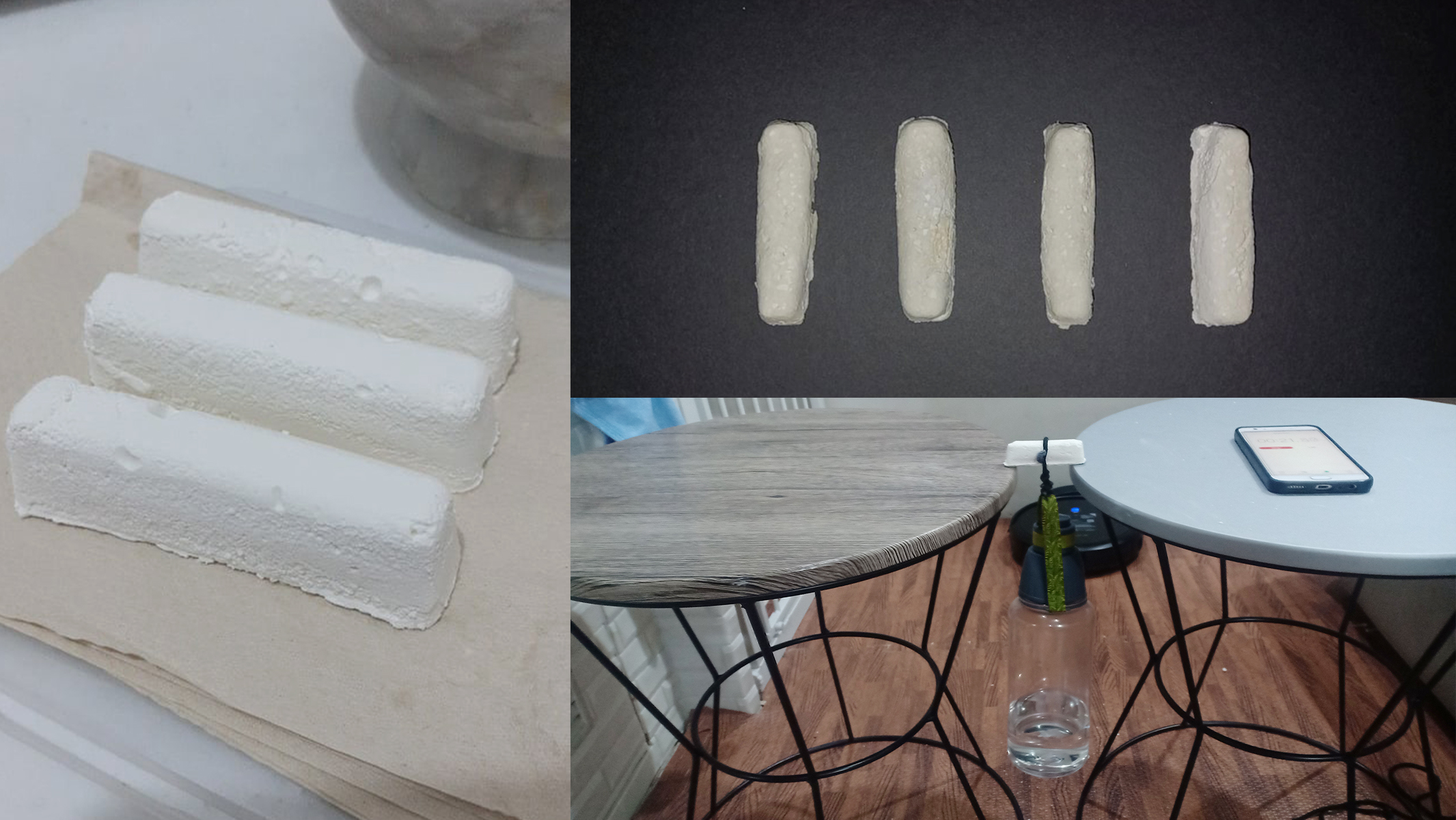News
Malayan Science researchers test school chalk alternatives to help local manufacturers, public school teachers
Monday, August 22, 2022To help small companies and businesses in the local chalk-making industry, a group of Malayan High School of Science (MHSS) students tested various alternatives to plaster of Paris, the main base used in making school chalk.
In their research “The Feasibility Study on the Usage of Eggshells and Different Plaster of Paris Substitutes as Materials for Making School Chalk,” Grade 10 students Alyanna Thea J. Azarcon, Jeanne Christine L. Caluag, Charles Nathan D. Cariaga, Precious Beatrice V. Magsombol, and Karl Anthony S. Rasing produced school chalk made of crushed eggshells and easily accessible and similar alternative bases like cornstarch, flour, and laundry starch.

A group of Malayan Science students produced school chalk made of crushed eggshells and easily accessible and similar alternative bases such as cornstarch (left), flour (top right), and laundry starch (bottom right).
Applying various tests to check the outputs’ pigmentation and erasability, density, and durability, the researchers found the potential in using the alternative ingredients as replacements for plaster of Paris base in school chalk recipes.
The study was recognized as one of the top research works in Malayan Science’s community research fair held last April 22. According to Jonathan A. Carpio, MHSS Science and Technology teacher and the group’s research adviser, the impact and execution of the research contributed to this feat.
“The study emerged as one of the best research projects of the year because the researchers were able to address the problem that they have chosen through a well-planned and well-executed protocol despite doing it only at home,” Carpio shared.
As there was no significant difference found between the quality of products made of the cheaper alternatives and commercially available chalk, the research would benefit chalk manufacturers both seeking options and experiencing shortage of plaster of Paris. As the full implementation of face-to-face classes looms, the study will also help teachers, especially those from public schools, who prefer school chalk due to its affordability.
Carpio noted that the study might be continued and developed, even with a new group of students, to further test its potential and feasibility. This plays a part in Malayan Science’s commitment to equip students with an analytical and creative mind by inspiring them to create innovative, well-crafted, and excellent research and innovative outputs.
“The students' research works serve as their legacy and bring honor to Malayan Science. More importantly, these help various communities mitigate their problems and address concerns,” Carpio said.
Malayan High School of Science, a leading junior high school in Manila, helps students build their future through its STEM-oriented programs. Its unique offerings in Research, Robotics and Technology, Coding, and Multimedia and Arts mold students in becoming competent and college-ready individuals.